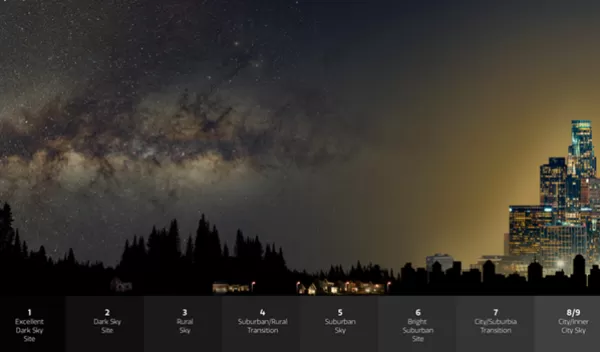
Stars disappear before our eyes in light pollution, citizen scientists report
A startling analysis from Globe at Night — a citizen science program run by the U.S. National Science Foundation NOIRLab — concludes that stars are disappearing from human sight at an astonishing rate. The study finds that, to human eyes, artificial lighting has dulled the night sky more rapidly than indicated by satellite measurements.
The study, published in the journal Science, showcases the unique contributions that citizen scientists can make in essential fields of research.
From the glowing arc of the Milky Way to dozens of intricate constellations, the unaided human eye should be able to perceive several thousand stars on a clear, dark night. Unfortunately, growing light pollution has robbed about 30% of people around the globe and approximately 80% of people in the United States of the nightly view of their home galaxy.
The new research sheds alarming light on the problem of "skyglow" — the diffuse illumination of the night sky that is a form of light pollution. The data for this study came from crowd-sourced observations collected from around the world as part of Globe at Night. The research reveals that skyglow is increasing more rapidly than shown in satellite measurements of Earth's surface brightness at night.
Light pollution is a familiar problem that has many detrimental effects, not only on the practice of astronomy. It also has an impact on human health and wildlife, disrupting the cyclical transition from sunlight to starlight that biological systems have evolved alongside. Furthermore, the loss of visible stars is a poignant loss of human cultural heritage. Until relatively recently, humans throughout history had an impressive view of the starry night sky, and the effect of this nightly spectacle is evident in ancient cultures, from the myths it inspired to the structures that were built in alignment with celestial bodies.
Despite being a well-recognized issue, however, the changes in sky brightness over time are not well documented, particularly on a global scale.
